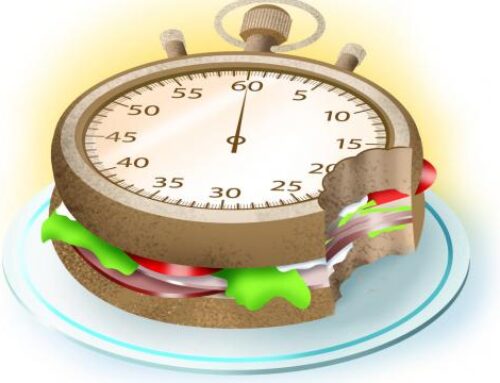Which Diet Works the Best?
December 1, 2015
Categories: Health
If you are anything like me, you get done with the Thanksgiving holiday feeling over-fed. Sure, it was great to have a never-ending supply of leftovers and desserts. But that can’t last forever. When I get back home to my regular schedule, I start thinking about getting my diet back on track.
Maybe you are trying to lose weight and get back into shape. You know you need to do something about what you eat, but it’s too confusing. It seems like every other week there is a new fad diet in the news. Low-fat, low-carb, Atkins, South Beach, Paleo… How can you figure out which diet is best for you?
A recent meta-analysis compared various types of diets. A meta-analysis is a type of review paper that summarizes the results from all studies on a particular topic. In this case, the authors reviewed all the experiments (48 experiments in all!) that compared the amount of weight loss for participants on a diet vs. a control group (i.e., no diet), and compared the results.
Before I share the results, let’s talk a bit about how diets work to help people lose weight. First, diets help people eat less. This is something that all diets have in common. All diets involve some version of counting calories, counting points, or portion control. When you follow a diet, you tend to eat less than normal, which helps you lose weight.
Second, diets help people eat right. This is where the diets vary. Each diet has a particular theory for what healthy eating looks like. For example, the Paleo diet focuses on eating proteins, fats, and vegetables, and limits other carbohydrates. The low-fat diet recommended by the old food pyramid focuses on eating low-fat carbohydrates, fruits, and vegetables, moderate amounts of dairy and meats, and low amounts of fats. The Zone diet advocates eating a balanced amount of carbohydrates, proteins, and fats. Again, the details differ from diet to diet, but they each present a theory for which foods are healthy and which foods are not.
So which diet was best? Here are the take-home points from the meta-analysis:
- Each diet was moderately successful. When compared to a control group (i.e., no diet), participants on just about every one of the diets in the meta-analysis reported more weight loss over time.
- Differences between diets were small. No one diet came out as a clear ‘winner.’ In other words, the differences in weight loss between the various diets were relatively small.
- Weight loss was greater at six months than at one year. In general, it was tough for people to maintain all of their weight loss over time.
So what does this mean for you as you try to pick a diet to remove those Thanksgiving pounds? There probably isn’t one kind of diet that is markedly better than another. It may be that for the goal of weight loss, the important thing is to follow a system that reduces your caloric intake. The exact mix of macronutrients probably doesn’t matter as much (at least for weight loss). Also, sticking to a diet seems to be pretty difficult. Many people stick to a system for a while, only to fall off the wagon and gain their weight back again. So, it might be helpful to pick a diet you think you can maintain over the long haul. If you can’t bear the thought of giving up your steak, maybe the low-carb diet is the best choice. On the other hand, if pasta is your thing, maybe the low-fat diet is the diet for you.
Discussion: Which diets have you found to be most successful in your weight loss efforts?
Related Thoughts
No Comments
Leave A Comment

Subscribe To My Newsletter
Join my mailing list to receive the latest blog posts.
Receive my e-book “The Mental Health Toolkit” for free when you subscribe.






[…] say you’re working on a new goal in your life. Maybe you want to lose weight or get in shape. Or maybe you’re trying to learn a new skill, like playing golf or the guitar. Or […]
[…] to reach my goal. I’m more likely to get up early, complete my workouts with high intensity, stick to my diet, and persist when I’m tired. If I do those things, I’m more likely to actually obtain my […]
[…] say we have two diet and exercise plans. Plan A is very effective (80% of people lose weight), but difficult to implement (10% of people […]
[…] Following a nutrition plan is hard. We aren’t robots. We aren’t perfect. We all have limitations in our discipline and […]
[…] you know you need to make some changes in your health, so you decide to start a workout program, eat healthier, AND improve your sleep habits. You are unlikely to succeed, because you’re trying to do too many […]
[…] and diet plans myself. I haven’t found a particular program or plan to be better than the rest. People lose weight on both low-fat and low-carb diets. People get in shape from Crossfit, P90x, and the local gym down the street. When someone tries to […]
[…] about it. My actions and behaviors are where it’s at. I have to do things like work out more, dial in my diet, cut out alcohol, drink enough water, and make sure my sleep and recovery are on point. It’s not […]
[…] people want to get rid of an unwanted behavior. Maybe you want to quit smoking, or stop eating too much. Maybe you want to stop yelling at your kids, or getting in arguments with your co-workers. Or […]
[…] ahead of time how much food you are going to eat, rather than just doing whatever. This is why diets that have you count calories or weigh and measure your food tend to work. You eat a prescribed amount, and then you stop. Even if you don’t want to get as detailed as […]
[…] losing weight, quitting smoking, or something else, most people focus on techniques. For example, what is the most effective diet and exercise strategy? Should I try one of these new drugs that are supposed to reduce cravings to smoke? And so […]
[…] other day, I told my wife I wanted to start eating healthier and get my diet back on track. At face value, it’s a pretty normal goal. Pretty much everyone has some goals related to health, […]